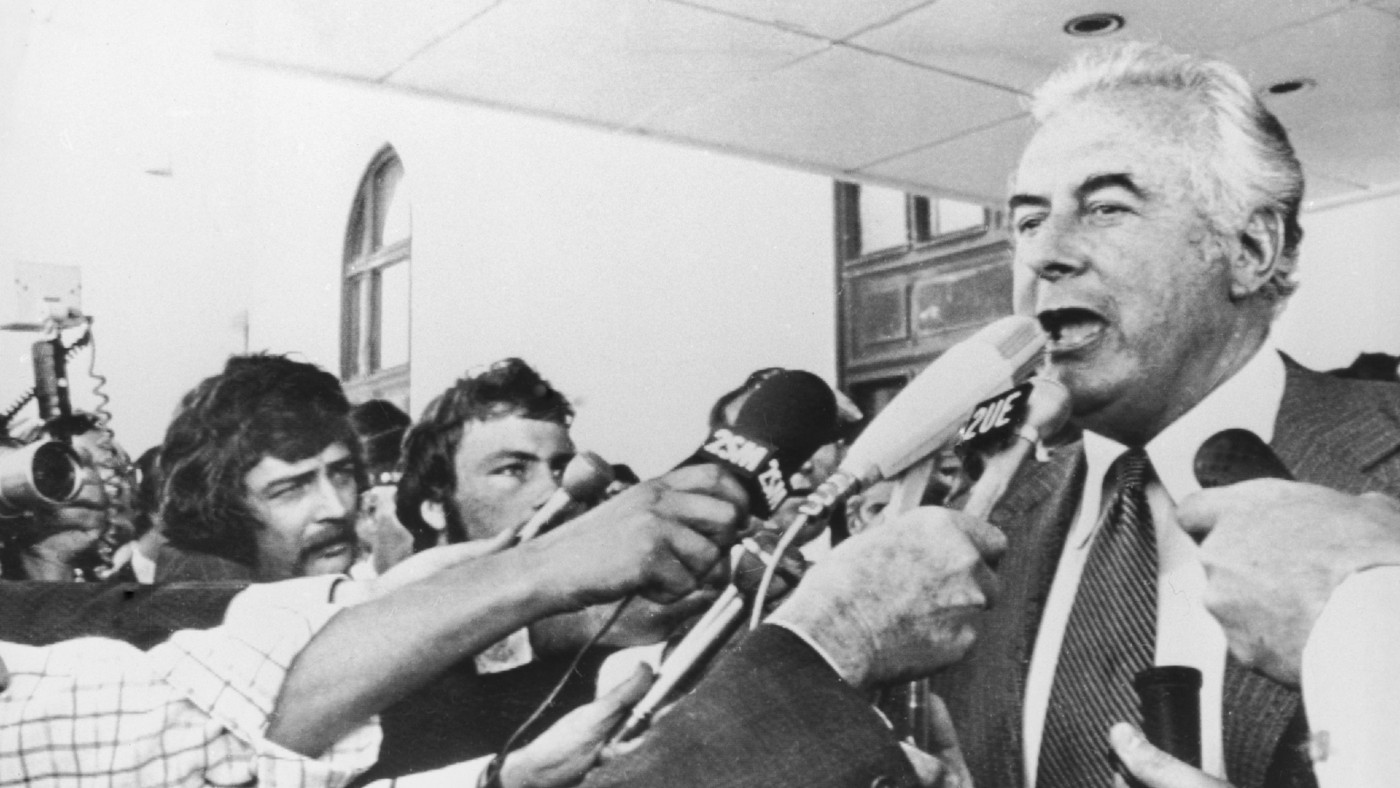Gough Whitlam: did the Queen dismiss Australia’s prime minister?
Newly released letters reveal Palace’s role in one of the most sensational political events in Australian history

A free daily email with the biggest news stories of the day – and the best features from TheWeek.com
You are now subscribed
Your newsletter sign-up was successful
A collection of more than 200 letters between Australia’s former governor-general John Kerr and the Queen has revealed the extent of the Palace’s role in the 1975 sacking of Labor prime minister Gough Whitlam.
So just what part did the British monarch play, if any, in one of the most controversial political events in Australian history?
What are the so-called Palace Letters?
The Week
Escape your echo chamber. Get the facts behind the news, plus analysis from multiple perspectives.

Sign up for The Week's Free Newsletters
From our morning news briefing to a weekly Good News Newsletter, get the best of The Week delivered directly to your inbox.
From our morning news briefing to a weekly Good News Newsletter, get the best of The Week delivered directly to your inbox.
Released this week by the National Archives of Australia, the collection is a trove of more than 1,200 pages of letters, telegrams and clippings exchanged between governor-general Kerr and Martin Charteris, then Queen Elizabeth’s private secretary.
Spanning from 1974 to 1977, the correspondence offers insight into an array of subjects including, critically, Kerr’s dismissal of the Whitlam government in November 1975.
The move was prompted by opposition leader Malcolm Fraser’s decision to use his party’s control of the Senate to block the government’s supply bills, effectively cutting off the flow of funds and triggering a constitutional crisis.
Buckingham Palace has “long fought” the public release of the letters, arguing that their suppression was essential “to preserve the constitutional position of the Monarch and the Monarchy”, The Times reports.
A free daily email with the biggest news stories of the day – and the best features from TheWeek.com
What do the letters show?
According to The Times, “suspicions about the Queen’s role in Whitlam’s dismissal have long helped to fuel Australia’s republican movement, which seeks to break constitutional ties with Britain and abolish the role of governor-general”.
But Buckingham Palace insists the newly released letters have “proved the Queen played no part in the decision by her representative”, the newspaper reports.
Yet that isn’t the whole story, argues Australian news site Crikey. The letters also reveal that Kerr “discussed the legal validity of dismissing Whitlam for months with the Queen’s private secretary”, the site says.
The exchanges amount to Kerr seeking guidance from Charteris on his powers to dismiss the Whitlam government and “about whether it would be wise” to do so, adds The Sydney Morning Herald.
In one letter sent prior to the dismissal, Charteris tells Kerr that while he may have the powers to dissolve parliament, he should “only use them in the last resort and then only for constitutional and not for political reasons”.
Later, in the wake of Whitlam’s sacking, the Queen’s aid says that Kerr’s decision not to inform Her Majesty showed “admirable consideration” - a comment that suggests the Palace was grateful that the governor-general had “shielded her from criticism”, says the newspaper.
Monash University emeritus professor Jenny Hocking, who fought for the Palace Letters to be released, claims that the volume of correspondence alone raises questions about the Queen’s possible involvement in the affair.
The sheer quantity of correspondence was “dramatic”, says Hocking, and a major departure from the convention of governors-general either before or since.
“The conventional arrangement was that governors would report on some sort of basis each year,” she told Crikey. “Some did that annually, the most they would have done that was quarterly. so you might have expected 12 letters from Kerr over a three-year period, not 116.”
The simple existence of so much correspondence directly refutes the idea that the Palace was a neutral player in the dismissal of Whitlam, agrees Australian National University emeritus professor John Warhurst, a former chair of the Australian Republican Movement.
“Living through 1975 you saw the Queen as barely even an observer, being 12,000 miles away, as if these were essentially Australian politics between the governor-general and the prime minister, as if Buckingham Palace had no prior knowledge about what was going on,” he said.
“But that close relationship between the governor-general and the Queen is part of the story of which we were unaware back in 1975.”
Warhurst concludes that the Palace Letters show “the essential one-ness of the relationship between the governor-general and the British monarchy. For republicans, that’s the important thread in this whole story.”
Arion McNicoll is a freelance writer at The Week Digital and was previously the UK website’s editor. He has also held senior editorial roles at CNN, The Times and The Sunday Times. Along with his writing work, he co-hosts “Today in History with The Retrospectors”, Rethink Audio’s flagship daily podcast, and is a regular panellist (and occasional stand-in host) on “The Week Unwrapped”. He is also a judge for The Publisher Podcast Awards.